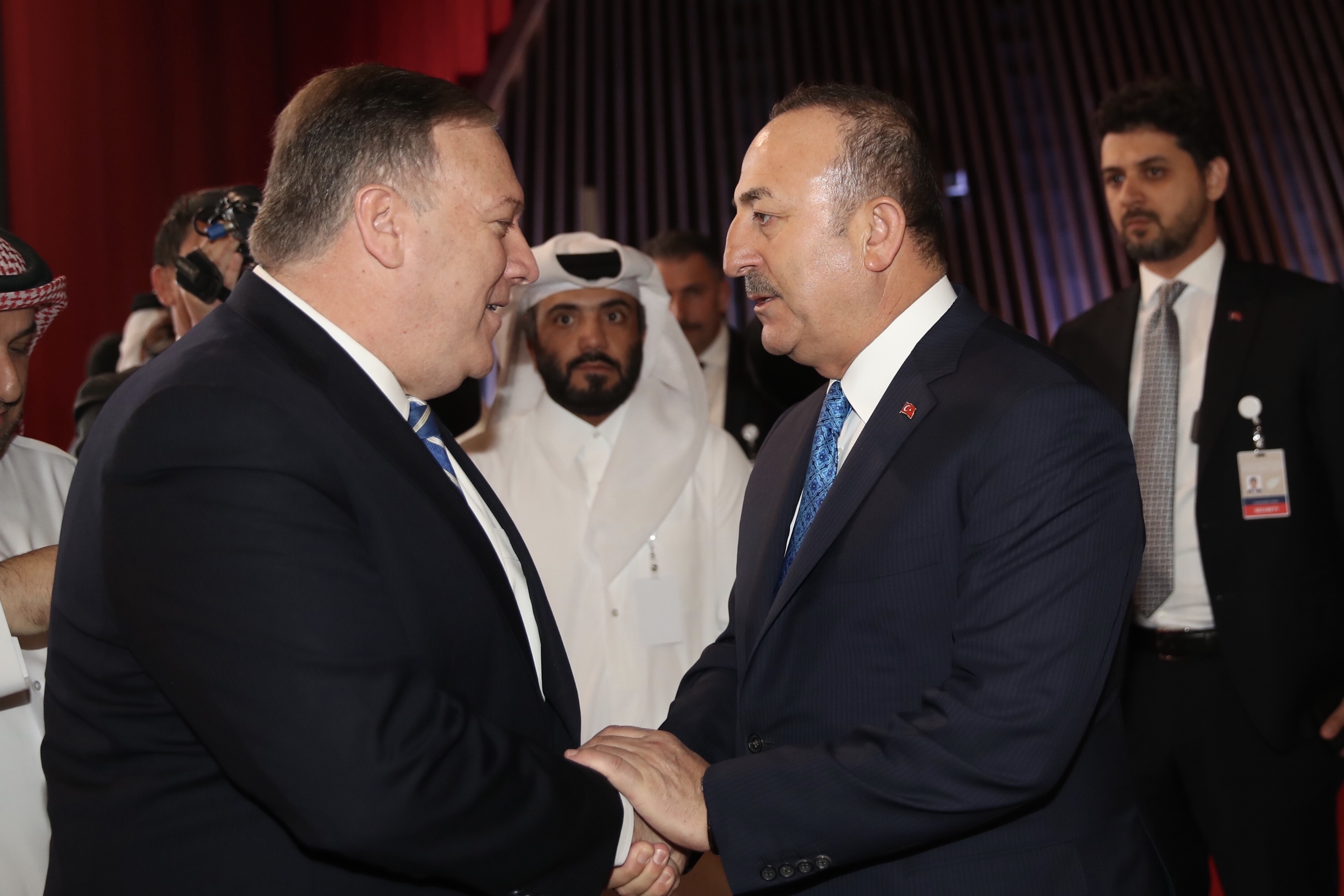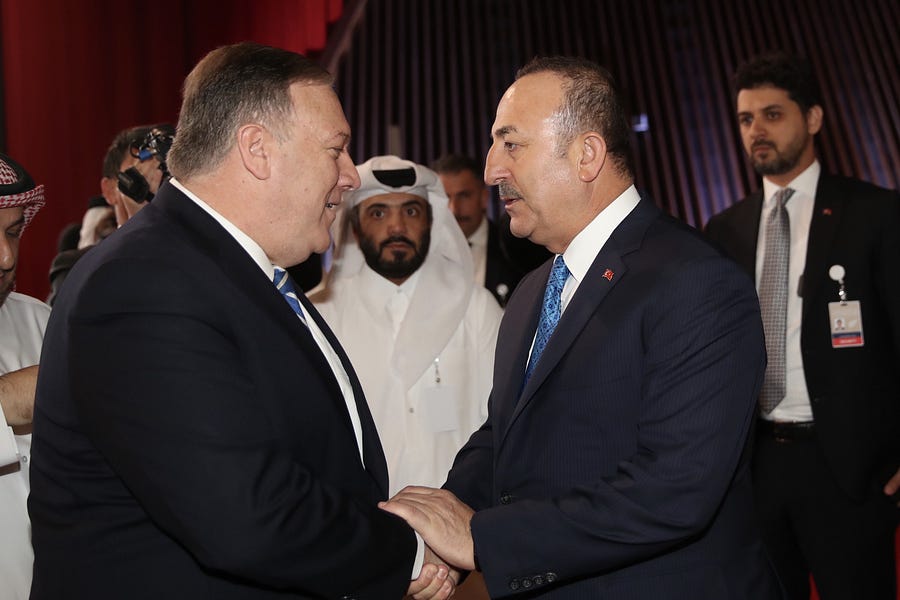Happy Monday! We hope you enjoyed your quadrennial Leap Day. Official stand-up comedian of The Morning Dispatch John Mulaney (he doesn’t pay us to say that, we just think he’s great) became the first person to host Saturday Night Live on a Leap Year Saturday over the weekend, and his opening monologue was faaaaantastic.
Quick Hits: Today’s Top Stories
-
Joe Biden won a decisive victory in South Carolina on Saturday, defeating second-place finisher Bernie Sanders by nearly 30 percentage points. The Palmetto State contest drove both Pete Buttigieg and Tom Steyer out of the race, with both ending their candidacies just days before Super Tuesday.
-
President Trump announced his intention to nominate Rep. John Ratcliffe as director of national intelligence, replacing acting DNI Richard Grenell. Trump floated Ratcliffe for the position last year, but withdrew his intention to nominate him following bipartisan pushback.
-
The Trump administration instituted additional travel restrictions and advisories on Iran, Italy, and South Korea as it looks to contain the spread of COVID-19. American officials have confirmed 74 cases of the coronavirus (including firsts in New York, Chicago, and Rhode Island) and two deaths (both in Washington state) stemming from the pathogen.
-
North Korea fired two unidentified projectiles into the sea, South Korea says.
-
House Democrats lost their appeal to force former White House counsel Don McGahn to testify to President Trump’s efforts to obstruct the Mueller investigation. The U.S. Court of Appeals’ decision said the court “lack[s] authority to resolve disputes between the Legislative and Executive Branches.”
-
For the first time in recent memory, there are more registered independents in the United States than registered Republicans. Democrats have seen a similar drop in registrations over the same period.
The Many Concessions of Our Deal With the Taliban

The United States signed an agreement with the Taliban for a plan to withdraw U.S. forces over the next nine months, effectively ending our presence in the country nearly two decades after the 9/11 attacks. On the site today, Steve has a piece that looks at the terms of the deal and finds it to be more than a little one-sided.
The concessions are significant. U.S troops begin a gradual withdrawal almost immediately, with the goal of a conditions-based “complete withdrawal of foreign forces” shortly after the U.S. election. The U.S. will lift its sanctions on Taliban leaders and promises to work on behalf of the Taliban at the United Nations to have international sanctions lifted, too. The language of the deal assumes that the current elected government of Afghanistan will be removed in order to make the new government more “representative,” meaning more Taliban-inclusive. And some 5,000 detained Taliban jihadists—ranging from low-level fighters all the way up to senior operatives—are set to be released as the work of putting together a post-withdrawal Afghan government begins in earnest.
Afghan President Ashraf Ghani, the elected leader of Afghanistan, objected to that last provision after the deal was released, given that these same Taliban fighters have spent years attempting to assassinate top Afghan government officials. “We have not made a commitment to release them. It’s a sovereign Afghan decision.” Ghani’s views were not represented in the talks, after the U.S. acceded to Taliban demands to exclude the current government from negotiations. The Taliban has long insisted the elected Afghan government is illegitimate.
The deal has required top Trump administration officials to back away from key claims made in the five months since President Trump canceled the meeting he’d planned with senior Taliban leaders at Camp David the week of the 18th anniversary of the 9/11 attacks. Just two weeks ago, Secretary of Defense Mark Esper declared: “Nobody right now is calling for the complete removal of US and coalition forces, U.S. forces will remain there as long as necessary to support our Afghan partners.” The agreement, however, declares: “The United States, its allies, and the Coalition will complete withdrawal of all remaining forces in Afghanistan within the remaining nine and a half (9.5) months.” The Taliban need not complete its obligations to bring about such a withdrawal; the agreement merely calls for the Taliban to provide “commitment and action on the obligations” of the deal.
During the on-and-off negotiations (you may remember that President Trump rescinded an invitation for Taliban leaders to come to Camp David the week of the anniversary of the 9/11 attacks), Pompeo said that the Taliban had agreed to announce a public split from al-Qaeda. And?
Neither this promise nor the earlier one touted by Pompeo—a permanent and public Taliban break from al-Qaeda—appear anywhere in the agreement.
That’s not the most significant omission. There is no verification mechanism at all in the publicly released text of the deal. The agreement doesn’t require much of the Taliban and what it does require cannot be verified. The question for the Trump administration is a simple one: Did you sign an agreement with the Taliban without any verification mechanisms or are there additional parts of the deal you’re not releasing to the American public?
South Carolina … Where Do We Go From Here?
Over the weekend, Joe Biden handily won the South Carolina primary, beating Bernie Sanders by nearly 30 points. Pete Buttigieg and Tom Steyer dropped out of the race. And Bernie Sanders announced that he raised $46.5 million in February—the highest fundraising haul of any 2020 candidate in any single month.
Even with all this news, the basics haven’t changed. To get the nomination, a candidate needs to secure 1,991 delegates—roughly 35 percent of which are up for grabs on Tuesday. Based on current polling in Super Tuesday states and because all delegates in this process are allocated proportionally, it will be difficult for any candidate—even Bernie Sanders, who is still leading the polls—to reach that number at this point. This means Democrats may not have a nominee until their convention in July when the 771 superdelegates have their say on the second ballot.
This all poses a big problem for the Democratic party. Elizabeth Warren’s campaign manager announced that she intends to stay in the race at least through March, and even with candidates like Buttigieg dropping out of the race, at least one recent poll shows that his voters will be more or less equally shared between Sanders, Biden, Warren, and Bloomberg—potentially pushing candidates like Bloomberg and Warren over the 15 percent delegate threshold in some areas.
On the one hand, Bernie Sanders will likely amass the largest plurality of delegates heading into the convention. He currently holds a double digit lead in the race for California’s 415 delegates. But Biden’s 4 to 1 win with black voters in South Carolina highlighted some problems with a potential Sanders path to the nomination. And as Sanders continues to face headwinds in the suburbs in states like Virginia and Texas, Axios reported that exit polling from South Carolina showed there were “more first-time primary voters than in 2016, and Biden won them by 7 points, undercutting Sanders’ argument he’s the one who can expand the electorate.”
Worth Your Time
-
You may have never heard of Freeman Dyson, but he was one of the most brilliant scientific minds in the world, an expert in the field of quantum electrodynamics. He died on Friday at the age of 96. Dyson spent much of his later life in San Diego, so here’s an obituary from the Union-Tribune, drawing from a 2016 interview he did with the paper. “‘He took everybody under his wing,’ UCSD physicist Brian Keating said Friday. ‘He was always charitable and gracious and really incisive in what he had to say. He was never negative or down. It was eternally cheerful. It was great to have this giant of physics here.’”
-
We were wondering when this day would come: We’re finally starting to get some real first-person accounts of dealing with coronavirus. In the Washington Post, California radio station owner Carl Goldman walks us through his experience coming down with the disease, which he says “hasn’t been that bad” despite a dramatic quarantine experience, courtesy of the federal government.
Presented Without Comment
Also Presented Without Comment
Something Fun
Congratulations to Warren, Rhode Island, police detective Michael Clancy, 62, on his retirement from the force. Minor detail: He hasn’t worked since 1998, when he got a staph infection.
From NBC 10 News: “When police officers or firefighters get hurt on the job, state law helps protect them by guaranteeing full pay and benefits until they recover and come back to work. It’s called injured on duty or IOD. But as the NBC 10 I-Team discovered years ago, some employees never fully recover and never come back to their job, but stay on the payroll.”
Toeing the Company Line
-
Louisiana Solicitor General Liz Murrill joined Sarah and David on Friday’s Advisory Opinions podcast to talk about June Medical Services v. Russo, her high-profile abortion case before the Supreme Court.
-
There was a Friday last week, so we got another G-File from Jonah. This one focused on quicksand (inexplicably) and White House Chief of Staff Mick Mulvaney’s comments trying to tie concern over coronavirus to media bias (explicable on Jonah’s part, inexplicable on Mulvaney’s). Do join us here at The Morning Dispatch in wishing Jonah’s spaniel, Pippa, a full and speedy recovery.
-
You might have heard about a survey that found 38 percent of Americans said they would stop drinking Corona beer because of the coronavirus. Declan did some reporting for this week’s Dispatch Fact Check and it turns out … that’s not true at all! Check out how misrepresented data from a PR firm made its way into the media here.
-
David’s Sunday French Press took a moment to reflect on that viral clip of Joe Biden talking about his faith, and how it represented a departure from the religious speak we usually see in politics. “This wasn’t Joe Biden the politician. It was Joe Biden the husband and father. He was describing finding grace and purpose in the midst of terrible grief. Putting politics aside, it was a deeply meaningful exchange, and it reminded me how discussion of religion in the public square—especially in the context of politics—is typically so impoverished. It’s stripped of meaning and context and personal connection.”
Reporting by Declan Garvey (@declanpgarvey), Andrew Egger (@EggerDC), Sarah Isgur (@whignewtons), and Steve Hayes (@stephenfhayes).
Photograph of Turkish Foreign Minister Mevlut Cavusoglu (right) and U.S. Secretary of State Mike Pompeo by by Fatih Aktas/Anadolu Agency via Getty Images.






Please note that we at The Dispatch hold ourselves, our work, and our commenters to a higher standard than other places on the internet. We welcome comments that foster genuine debate or discussion—including comments critical of us or our work—but responses that include ad hominem attacks on fellow Dispatch members or are intended to stoke fear and anger may be moderated.
You are currently using a limited time guest pass and do not have access to commenting. Consider subscribing to join the conversation.
With your membership, you only have the ability to comment on The Morning Dispatch articles. Consider upgrading to join the conversation everywhere.